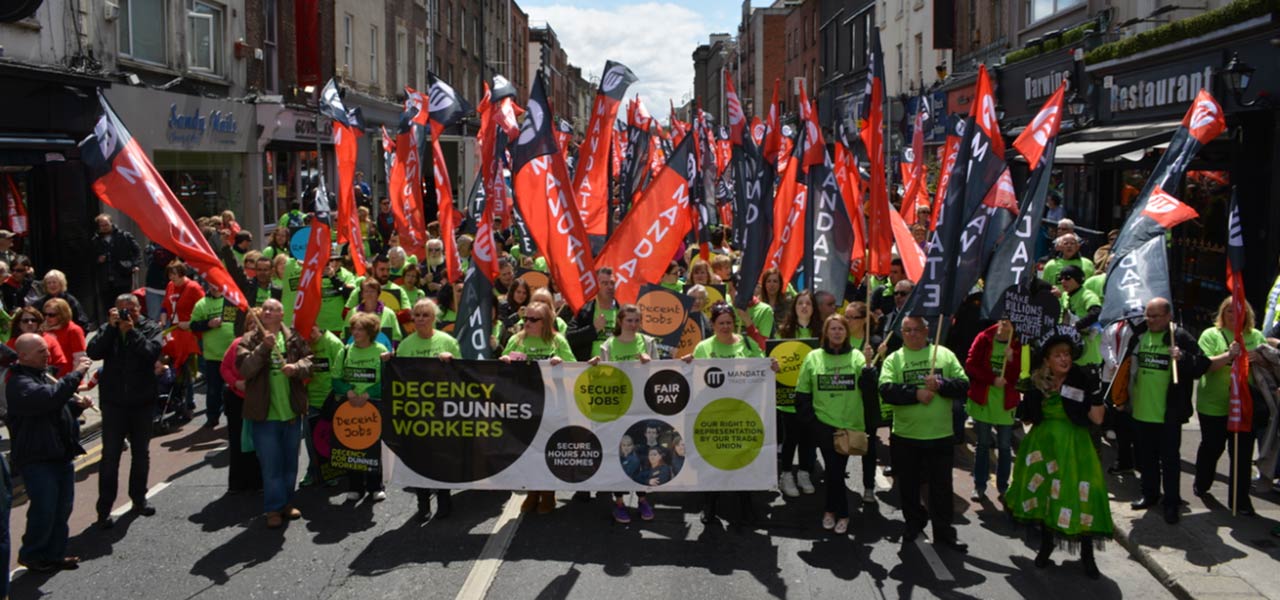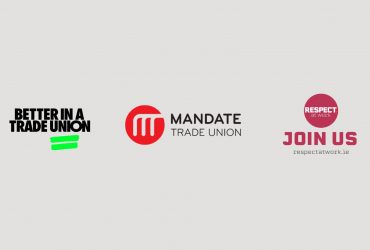
Mandate calls for repeal of anti-union legislation in Ireland
Tuesday 2 July 2019For Immediate Release
Mandate Trade Union General Secretary John Douglas has today (Tuesday 2nd July 2019) condemned the “sophisticated union busting behaviour of employers such as Tesco, Dunnes, Lloyds Pharmacy, IKEA, Paddy Power, Aldi and Lidl” and called for much stronger legal protections for workers in the form of statutory collective bargaining and enforceable access to workplaces for unions.
Speaking at the opening day of the Irish Congress of Trade Unions Biennial Delegate Conference taking place today in Trinity College, Dublin, Mr Douglas said, “The voluntarist industrial model of the state is fundamentally broken.” Mandate has over the past number of years been frustrated by both provocation and prevarication from many employers, and Mr Douglas added, “Any such industrial relations model can only operate effectively when both parties, employer and trade unions, agree to meaningful engagement. Our experience in dealing with many retail employers is that they ignore their own workers human right to be represented by a union of their choice, they refuse to meaningfully engage and actively attempt to undermine a union in the workplace. Also on occasions, some employers disgracefully choose to ignore the Labour Court and the States industrial relations mechanisms. Frankly, the voluntarist system of industrial relations has reached a tipping point with workers now steadily organising themselves for a fight back.”
Mandate is calling for the urgent repeal of the Industrial Relations Act (1990) which took large areas of control and decision making away from unions and handed them to employers and the legal system. Mr Douglas added, “Unions over many decades have achieved great advances and gains for workers in both the public and private sector. However, a continual disregard by certain employers of the right of unions to even exist coupled with the anti-union Industrial Relations Act (1990), which restricts and prohibits mobilising union tactics that helped workers win improvements in their working lives, shamefully means that our workplaces are not a welcome place for trade unionism and a real voice at work.”
According to the Central Bank, the richest 10 per cent of Irish-resident financial asset-holders (those with shares, financial investments, or deposits) now have €50 billion more than at the peak in 2006. Austerity has worked very well for the rich but not so well for workers struggling to put food on the table and a roof over their family’s heads.
Mandate believes that trade union rights are human rights and as such deserve to be fundamentally and robustly protected by vastly improved labour laws. Mr Douglas concluded, “The old-style voluntarist system in Ireland is all but finished and arguing for new legislation won’t solve all our problems but it’d certainly provide a decent starting point for the put upon working class of Ireland. The crisis’ we see in housing and health, the huge increases in precarious working and the continued privatisation agenda of our government in our failed Republic are all being carried out at a time when unions should be leading from the front and willing to fight for their members. We will not be found wanting in that regard.”
Ends





